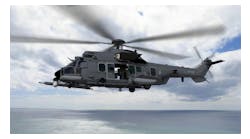Election Day 2014 is over (for the most part). With just a couple a races outstanding, the makeup of the next Congress will be overwhelmingly Republican, as the GOP picked up seats in the House and flew into the Senate majority.
Elections always have consequences and with the new Congress poised to consider a host of issues, including Federal Aviation Administration (FAA) reauthorization legislation, we’ll get a sense of how lawmakers will handle the issues important to the aviation industry and more specifically, the maintenance sector.
Conventional wisdom is that Republicans are generally less susceptible to false safety and economic arguments against contract repair stations, but proposals to suffocate the aviation maintenance industry with unnecessary mandates will undoubtedly reappear. However, all politics is local, so while the GOP tends to be more “business friendly” and supportive of operational freedom, constituent perception and economic conditions back home can sway a normally pro-industry lawmaker to take a closer look at aviation contract maintenance. Consequently, repair stations must be engaged and diligent regardless of the perceived pro-industry tilt of majority party.
How will the new Congress deal with policy issues important to the aviation maintenance industry?
Aviation Policy
With so many new faces, ARSA will be working overtime to familiarize lawmakers with repair stations. Several key industry advocates, such as Reps. Tom Petri (R-Wis.) and Howard Coble (R-N.C.) retired and others could shift off key committees, making education more necessary than ever. While many of the key players will be the same, ARSA is keeping a close eye on new leaders on the Transportation & Infrastructure (T&I) Committee and the Commerce, Science & Transportation Committee. Peter DeFazio (D-Ore.) is poised to become the House T&I Ranking Member. In the past, DeFazio has been aggressive in offering unnecessary proposals that would burden repair stations. On the other hand, Sen. Bill Nelson (D-Fla.) will likely take over the Senate Commerce, Science & Transportation Committee’s top Democratic spot. Nelson understands the aviation maintenance industry’s economic impact – particularly in his home state of Florida, and has a relatively clean slate on aviation maintenance policy issues.
Every few years, Congress is supposed to enact legislation to set the FAA’s funding levels and policy priorities for years into the future (known as “reauthorization”). With the current authorization (the FAA Modernization & Reform Act) expiring on Sept. 30, 2015, lawmakers will be working toward a new FAA bill in the spring with the hope of completing it before October.
During the last FAA reauthorization cycle, the aviation maintenance industry was forced to combat attempts to enact unnecessary, mandatory inspection requirements regardless of risk, forced drug and alcohol testing of overseas maintenance providers at FAA-certificated foreign repair stations and an unworkable plan to regulate non-certificated maintenance providers. These policies jeopardized the United States’ bilateral aviation safety agreement (BASA) with the European Union and threatened U.S. companies with EASA certification.
We survived, but once a bad idea is unveiled in Washington, it never goes away. We expect to once again combat interests hostile to contract maintenance and anticipate success. However, victory isn’t guaranteed without industry engagement and education efforts.
Regulatory Reform
The Republican wave was partially based on dissatisfaction with government inefficiency and regulation. Throughout the campaign season, Republicans hammered the Obama administration for its regulatory regime while many Democrats distanced themselves from the president for the exact same reason.
The GOP Senate majority will look to cut bureaucratic red tape and attempt to make government more efficient. Reforms to the Regulatory Flexibility Act and the Administrative Procedures Act to strengthen small business protections during the rulemaking process are ripe for consideration and should be a top priority for Republicans in both chambers
Additionally, it’s expected that the 114th Congress will attempt to make the agency more proficient and resourceful by reforming what is often an inefficient, overburdening, and inconsistent regulatory system. The aviation maintenance industry should take advantage by advocating for greater due process protections during FAA enforcement actions while pursuing other reforms to ease the regulatory burden on repair stations.
Tax Reform
Nearly every Republican candidate made lowering the tax burden a top issue during the 2014 campaign. It’s expected that both the House and Senate tax-writing committees will release proposals to reform the Internal Revenue Code. Congressional Republicans are less inclined to increase taxes and fees on the commercial, general, and business aviation sectors, which threaten the economic viability of the aviation maintenance industry’s primary customers.
ARSA will continue to advocate for a pro-growth tax agenda that simplifies and adds certainty to the code while incentivizing capital investments. Additionally, any reduction in corporate tax rates should be matched with similar cuts in the rates for pass-throughs and S-Corps. While tax reform is possible next Congress, it’s a heavy-lift and will require bipartisan compromise and White House cooperation.
FAA Funding
Repair stations rely on the FAA for congressionally-mandated certifications and inspections. Failing to provide the agency sufficient resources results in administrative delays and ultimately undermines the competitiveness of the U.S. aviation industry. While incoming Senate Majority Leader Mitch McConnell (R-Ky.) and House Speaker John Boehner (R-Ohio) have pledged to ensure there will not be another government shutdown, Republican caucus members are certainly going to be chomping at the bit to cut government spending.
Nonetheless, while increases in agency resources are unlikely in the near-term, GOP lawmakers hope to show the American people that they can govern. One way to do that is to keep the government functioning and avoiding polarizing budget showdowns.
With just over 700 days until the 2016 election, the window is short for legislative accomplishments on Capitol Hill. By this time next year, the nation will be gearing up for the presidential race and the balance of power in Congress will once again be up for grabs. Nonetheless, the FAA reauthorization process will undoubtedly pose significant threats to repair stations while also providing opportunities for positive reform. Continued industry engagement is critical to ensure contract maintenance is at the table, not on the menu.
ARSA is your voice, but we need engagement from the entire repair station community to succeed.
Daniel Fisher is Vice President of Legislative Affairs for ARSA.




